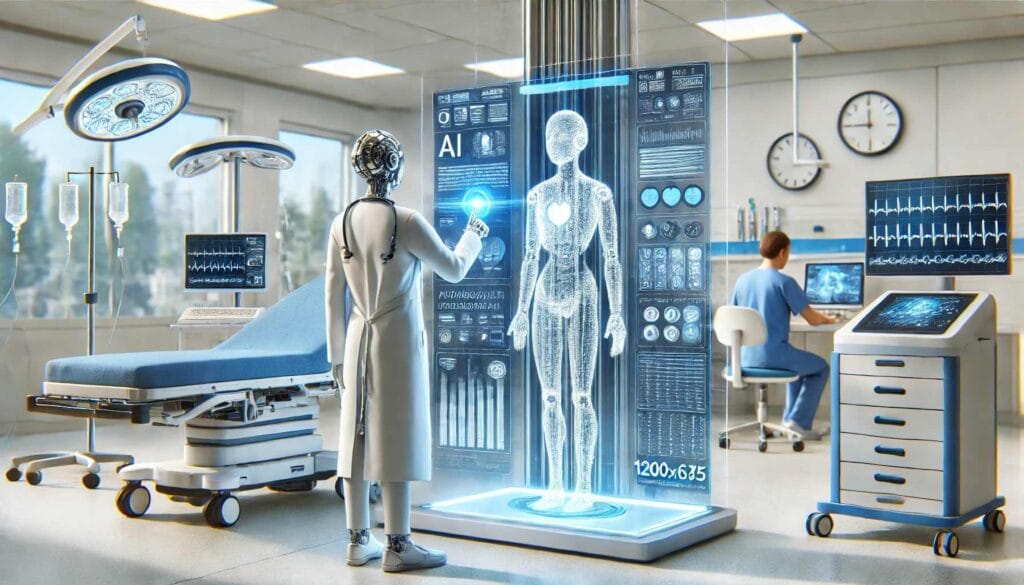The Impact of AI in Healthcare

Introduction
Artificial intelligence (AI) has revolutionized various industries, and healthcare is no exception. From diagnosing complex diseases to enhancing patient care, AI is reshaping how medical professionals approach treatment, research, and patient management. This article explores the profound impact AI has made in healthcare, highlighting key applications, benefits, and challenges.
Transforming Diagnosis and Detection
AI-powered tools like machine learning algorithms and computer vision are significantly enhancing the speed and accuracy of diagnosis. For instance, radiology and pathology now benefit from AI applications that can analyze medical images (like MRIs, X-rays, and CT scans) to detect anomalies, sometimes with higher precision than human experts. Early and accurate detection of diseases like cancer, heart disease, and neurological disorders becomes more feasible, improving patient outcomes by enabling timely interventions.
Personalized Treatment Plans
AI supports personalized medicine by analyzing vast amounts of patient data to recommend customized treatment options. With the help of AI, doctors can consider a patient’s genetic information, lifestyle, and medical history to tailor therapies that best fit their needs. This approach not only increases the effectiveness of treatments but also reduces the risk of adverse side effects.
Streamlining Drug Discovery
AI is accelerating the process of drug discovery and development, which traditionally takes years and significant financial investment. Machine learning algorithms can analyze existing medical data to identify potential compounds and predict their effectiveness in treating specific diseases. This streamlined approach is particularly valuable for developing treatments for rare diseases or new illnesses, as evidenced by AI’s role in the rapid development of COVID-19 therapies.
Enhancing Patient Care and Monitoring
AI-powered wearable devices and apps enable real-time health monitoring, allowing patients to manage chronic conditions more effectively. For example, AI algorithms analyze data from wearables to provide real-time alerts for irregular heartbeats, abnormal blood glucose levels, and other health markers, helping patients and doctors detect issues early. Remote patient monitoring powered by AI reduces hospital readmissions and enhances preventive care.
Improving Healthcare Administration
Beyond clinical applications, AI also optimizes administrative tasks in healthcare facilities, helping with tasks such as scheduling, billing, and managing patient records. Natural language processing (NLP) algorithms assist in transcribing doctors’ notes, making it easier to access and analyze patient data. Streamlining these tasks reduces operational costs and frees up more time for healthcare professionals to focus on patient care.
Ethical and Privacy Challenges
Despite the advantages, integrating AI into healthcare brings ethical and privacy concerns. The collection and analysis of patient data require strict compliance with privacy regulations to protect patient information. Additionally, while AI can assist medical professionals, it cannot replace human empathy and judgment, especially in critical and complex cases.
Conclusion
AI is transforming healthcare in remarkable ways, from enhancing diagnostic accuracy to enabling personalized treatments and improving patient care. As technology continues to evolve, the potential for AI in healthcare will expand, promising a future where medical care is not only faster and more efficient but also more tailored to individual needs. The journey of AI in healthcare has just begun, and its role in shaping the future of medicine looks promising and indispensable.
Source : Medium.com




